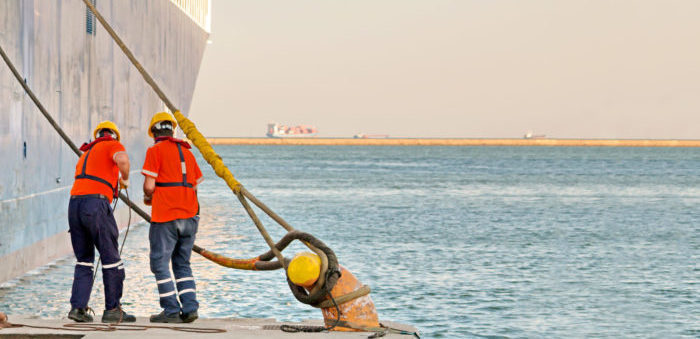The World Maritime University (WMU) announced publication of the inaugural report from the historic MarTID (Maritime Training Insights Database) survey initiative, intended to study global maritime training practices and investments. The report showed that more operators increased their budget for crew training from 2016 to 2017.
On 29 June 2017, the President of WMU, Dr. Cleopatra Doumbia-Henry, the CEO of Marine Learning Systems, Mr Murray Goldberg, and the Vice-President of New Wave Media, Mr Greg Trauthwein, signed a MoU which established a partnership between the three organizations to conduct recurring global surveys on seafarer training practices in industry. The inaugural report is the fist tangible outcome of this initiative. Dr. Cleopatra Doumbia-Henry, President of the World Maritime University, stated:
Well trained and competent crews are critical to ship safety and security, as well as to the environmental and commercial sustainability of shipping and, by extension, of world trade. To a large degree, however, the industry as a whole, knows very little about the training approaches and successes of vessel operators and training centres outside personal circles. The secure and anonymized MarTID data provides insights into training practices, budgets, priorities, challenges and perspectives as well as a global picture of maritime training that is not currently available anywhere.
Key findings
- For those increasing the training budget, the typical increase fell in 5% to 25% range.
- Increases in 2018 are anticipated larger than from 2016 to 2017.
- Increased regulatory requirements, a greater focus on safety and CAPEX were the most common reasons for changes to the training budget.
- The average organization spent $819 USD per seafarer for training in 2017. While more than half of the respondents spent 1-5% of their total operating budget on training, some spent as much as 20% or more.
- Almost 70% of the respondents felt their training practices were better than average. 77% felt their training covered operational risks, leaving roughly 13% who felt it did not.
- Respondents identified key training priorities that need to be addressed in the next 5 years:
-Technology-related training,
-safety culture/skills,
-environmental and competence training. - From most to least important, the training drivers for respondents were:
-reducing incidents
-complying with regulations
-increasing commercial efficiency
-managing crew competency
-career development for seafarers. - While 15% believe the STCW is not aligned to industry needs, another 15% believe that it is adequate for international seafarer training if implemented properly.
The respondents are mostly operating in North America, Europe and Asia Pacific, in a wide range of vessel types.
MarTID is designed to provide a global picture of maritime training, offering the global maritime community data on current and emerging training trends and techniques, staffing models, training focus areas, training tools, training resource allocation and assessment practices.
The mission of MarTID is to help ensure safe, efficient and sustainable maritime operations on clean oceans. It will do so by providing the maritime industry with comprehensive data on how it manages and conducts training for shipboard competencies and the effects of drivers, such as technology, on this training. This data, updated annually by means of a global survey, will provide insights that can lead to enhanced policy-setting, decision-making, benchmarking and operational optimization by industry and regulatory authorities at all levels.
See further details in the PDF herebelow


































































